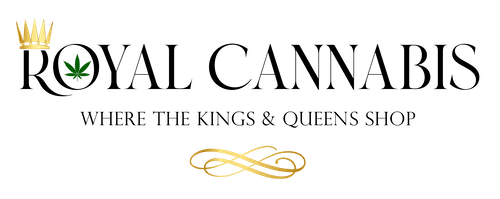The legalization of THCA (tetrahydrocannabinolic acid) in the United States marks a significant milestone in the evolving cannabis industry. But why exactly is THCA legal now?
Let’s delve into the factors driving this change and explore how it impacts consumers, businesses, and regulatory frameworks.

Firstly, it’s essential to grasp the distinction between THCA and THC (tetrahydrocannabinol). While THC is well-known for its psychoactive effects, THCA is THC’s precursor compound found in raw cannabis plants. In and of itself, THCA lacks the mind-altering properties typically associated with THC.
THCA’s potential to convert into THC is a noteworthy aspect of its legality and availability in dispensaries. In fact, many cannabis strains naturally contain high levels of THCA, which can transform into THC through decarboxylation, a process that occurs with exposure to heat.

Dispensaries often offer cannabis products that boast elevated THCA levels, recognizing the compound’s therapeutic potential.
How Exactly Do Consumers Activate the THCA Cannabinoids?
Consumers can then activate the THCA by applying heat, such as through smoking, vaping, or cooking, to unlock its full effects.

This conversion process underscores the versatility of THCA-rich cannabis products, allowing consumers to tailor their consumption methods to suit their preferences and needs.
Whether seeking immediate relief or a more gradual onset of effects, individuals can harness the benefits of THCA in a manner that aligns with their wellness goals.
By recognizing THCA’s potential to convert into THC and leveraging this knowledge in product offerings, dispensaries can cater to a diverse range of consumer preferences while adhering to regulatory requirements.

This approach ensures accessibility and choice for consumers seeking THCA-rich cannabis products in dispensaries nationwide.
So, what prompted the legalization of THCA in 2024? Several factors have contributed to this shift in cannabis regulations. One significant catalyst is the growing body of scientific research highlighting the potential health benefits of THCA. Studies suggest that THCA possesses anti-inflammatory, neuroprotective, and antiemetic properties, among others.
Moreover, public perception of cannabis has evolved considerably in recent years. As more individuals recognize the therapeutic potential of cannabinoids beyond THC and CBD (cannabidiol), there’s been a push for broader access to a diverse range of cannabis compounds, including THCA.

Additionally, legislative changes at the state and federal levels have played a pivotal role in shaping the legal landscape for cannabis and its derivatives. Many states have moved to legalize medical and recreational cannabis, opening the door for the regulated production and distribution of THCA products.
Furthermore, the economic potential of the cannabis industry cannot be overlooked. Legalizing THCA allows businesses to tap into a lucrative market while generating tax revenue for governments. This economic incentive has spurred policymakers to revisit outdated cannabis laws and embrace more progressive approaches.
Relevant Legislation
In understanding the legal status of THCA, it’s essential to examine the relevant legislation, including the Farm Bill. The Farm Bill, notably the Agricultural Improvement Act of 2018, played a pivotal role in shaping the legal landscape for hemp and its derivatives, including THC and THCA.

One critical aspect of the Farm Bill is its definition of hemp, which distinguishes hemp from marijuana based on the concentration of Delta-9 tetrahydrocannabinol (THC). Specifically, hemp is defined as cannabis containing no more than 0.3% Delta-9 THC on a dry weight basis.

This distinction is significant because it effectively legalized the cultivation, production, and sale of hemp-derived products, including CBD (cannabidiol) and other cannabinoids, with THC levels below the statutory threshold.
However, the Farm Bill does not specifically mention THCA or set limits on its concentration in hemp-derived products. Instead, it focuses primarily on Delta-9 THC as the key determinant of hemp’s legal status.
This distinction is essential because again, THCA, the precursor to THC, is present in raw cannabis plants but typically converts to THC through decarboxylation, a process that occurs with exposure to heat.

As a result, THCA-rich hemp flower or products may technically contain minimal levels of Delta-9 THC before decarboxylation. However, these products are legal under the Farm Bill as long as they comply with the 0.3% Delta-9 THC threshold in their final form. It’s worth noting that some states may have additional regulations or testing requirements for hemp-derived products, which businesses and consumers must navigate to ensure compliance with local laws.
Overall, while the Farm Bill does not explicitly address THCA, its provisions regarding Delta-9 THC serve as the primary basis for determining the legality of hemp and its derivatives under federal law.
As the cannabis industry continues to evolve, policymakers may revisit and refine regulations to address emerging compounds and ensure clarity and consistency in the legal framework for hemp-derived products.

What’s Next for THCA?
As THCA gains legal recognition, consumers are presented with a wider array of product options. From THCA-infused tinctures and edibles to topicals and concentrates, individuals can explore new ways to incorporate THCA into their wellness routines.
But how can consumers access THCA products in 2024? With the advent of nationwide delivery services, purchasing THCA has never been more convenient.

Online platforms and licensed dispensaries offer a diverse selection of THCA products, ensuring accessibility for consumers across the country.
However, it’s crucial for consumers to exercise caution and conduct thorough research before purchasing THCA products. Quality control and product safety are paramount considerations, necessitating scrutiny of product sources, lab testing procedures, and manufacturing standards.
Moreover, while THCA may be legal at the federal level, regulatory frameworks vary from state to state. It’s imperative for consumers to familiarize themselves with local laws and regulations governing the sale and consumption of cannabis-derived products, including THCA.

Conclusion
In conclusion, the legalization of THCA in 2024 reflects a broader shift in attitudes towards cannabis and its therapeutic potential. By embracing the benefits of THCA and expanding access to cannabis-derived compounds, policymakers are paving the way for innovation, research, and economic growth in the cannabis industry.
As consumers navigate this evolving landscape, education, awareness, and responsible consumption remain paramount in harnessing the full potential of THCA for health and wellness.
